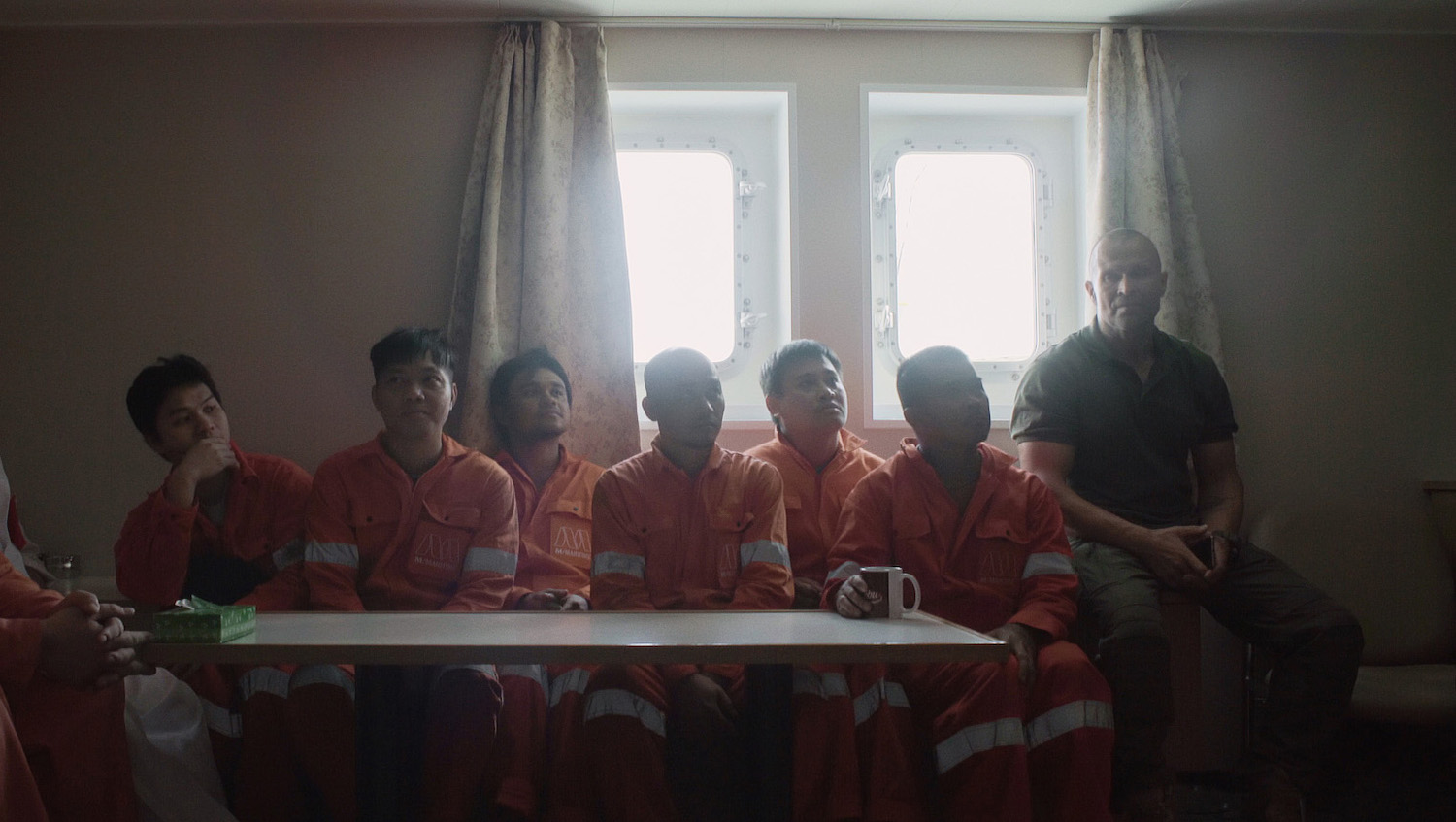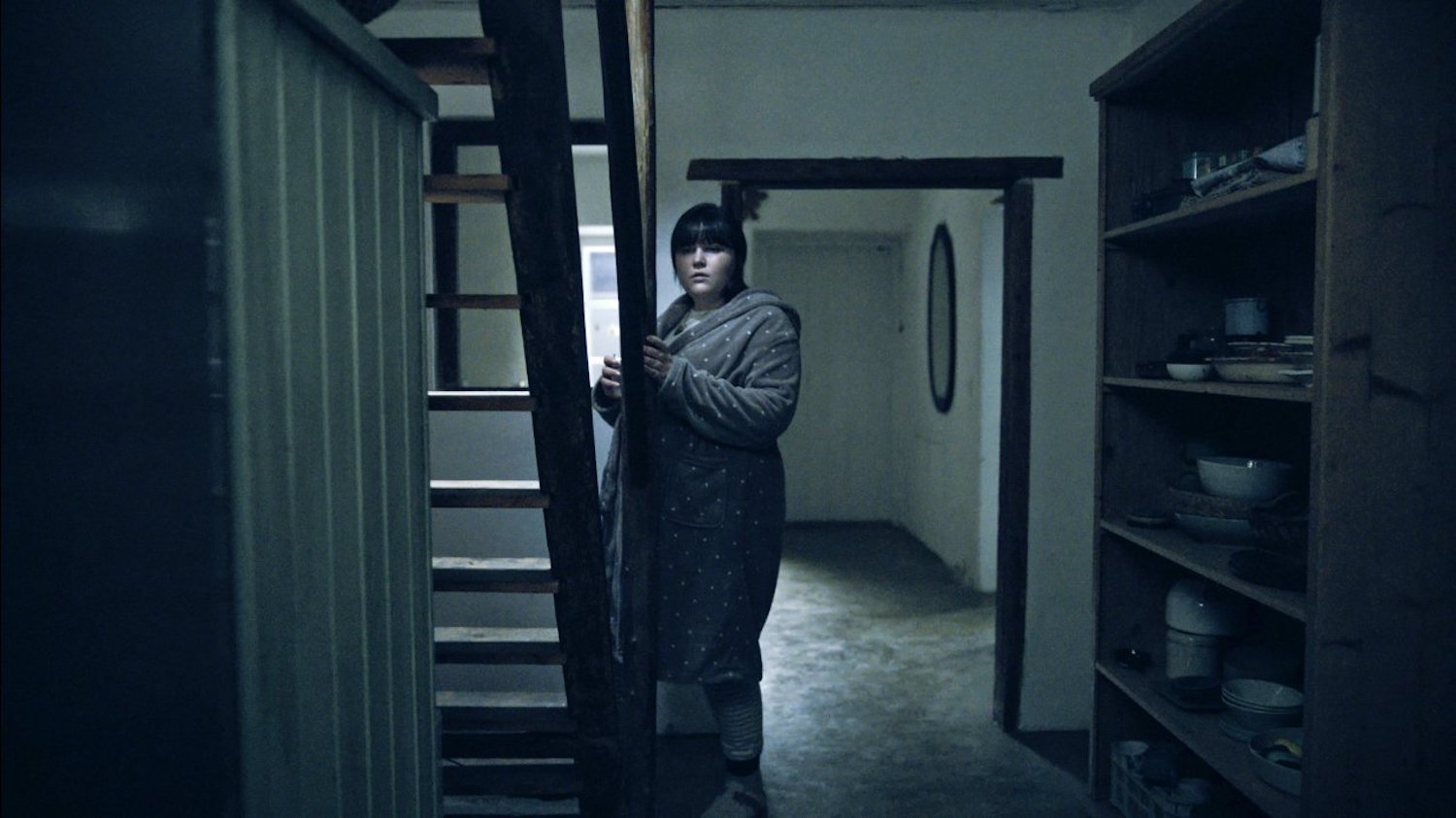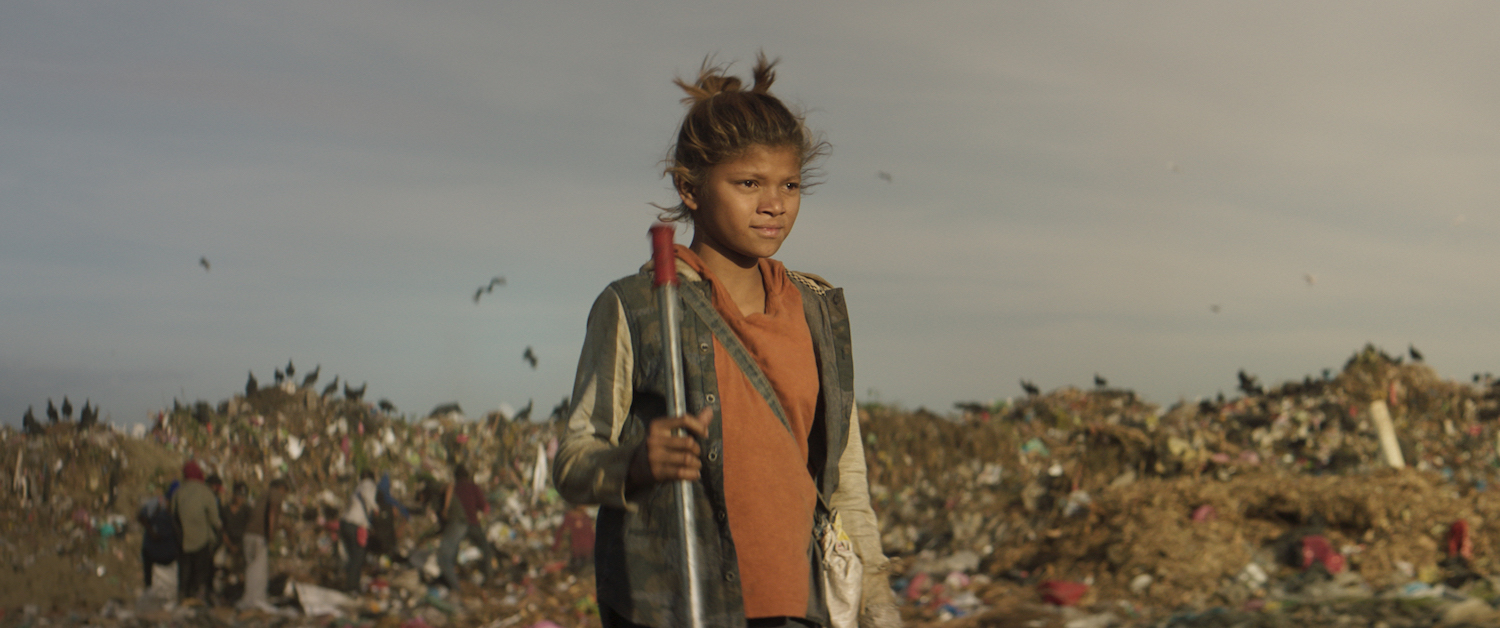Around 40 miles west of Cluj-Napoca is the village of Mărgău. A quintessentially Transylvanian commune, with thatched roofs amongst undulating hills, stray dogs and muddy fields, it’s also home to the unique Gumuțeasca argot, devised by window-makers in order to talk to each other without outsiders understanding.
Equally impenetrable for the outsider, perhaps, is the language of journalists, producers and directors, throwing around the names of films and festivals that sound alien to others outside of the business.
A mere three-hour round trip from the city itself — mostly thanks to Romania’s infamous car fetish, causing endless, perhaps unnecessary traffic jams — it laid host to a variety of professionals, including myself, who enjoyed pig fat rashers and chorizo, insanely tasty lángos (Hungarian flatbread with some cheese), incredible multicoloured cheeses, heaps of bread, and a type of local mushroom risotto, all served with hearty red and white wine. I enjoyed myself very much, even if the heavy rain threatened to turn the countryside into a misty, flooded marsh.
It was certainly the highlight of my day. Now let’s get to the films.
…

Triangle of Loneliness
While Somalian waters are far from the heyday enjoyed in Captain Phillips (Paul Greengrass, 2013) — a time when it seemed like pirates were making a genuine comeback in the popular consciousness, the Gulf of Aden and its surrounding areas are still classified by those in the shipping know as High-Risk Zones.
What’s Up Doc? entry Dogwatch (Gregoris Rentis, 2022, feature and above) follows three private military men classed with protecting these vessels, finally answering my burning wish for a film about the inner lives of those generic men who patrol ships in action movies before Jason Statham or Gerard Butler climb on board and wreck them instantly. Helping to solidify this sense of capitalism-driven anonymity is the lack of any flags flying from this ship, a seemingly conscious choice considering that all vessels are bound by maritime law to showcase their country of registration.
Rentis captures three different stages of private security life. We start with the young Greek Yorgos, standing out partying in Sri Lanka, enjoying freedom and dancing amongst a crowd of locals, his T-shirt rippling in the wind, his eyes searching for adventure; before moving to the South African, late-30s or so, Costa, experienced on the seas but missing his family back home; before finally settling on Victor, transitioning back to life in Greece after many years away.
Using a widescreen lens and experimenting with close-ups and fish-eye lens shots, Rentis captures both the intimacy of military life (shaving one’s head is a constant motif) and its absurdity, intentionally staging simulations that stand in for any actual conflict. Certainly capturing the loneliness and boredom of life on the sea, Rentis holds his protagonists at a remove — while direct testimony would certainly undercut the deadpan heart of the project, there’s little to be invested in either, coming to few conclusions about the corrosive nature of the job.
Despite the dangers, Victor evidently misses the old days, coming alive when training new men in the ins and outs of close-quarter gunfighting. He later watches his daughter play PUBG (a battle Royale game) on her phone. It’s about as close as the two of them get.

Keeping It in the Family
A car snakes through the woods, caught by drone photography. Ominous synth music plays. It stops at a remote house in the countryside. A young girl gets out. Just from the opening scene alone, we know that Simi (Nina Katlein), overweight and self-conscious, desperate for attention, is in for a torrid time.
The opening of the Austrian Full Moon-section screening Family Dinner (Peter Hengl, 2022, above) firmly establishes it as a classical horror film, a notion that is rarely dispelled throughout a 90-minute runtime. While handsomely-made and well-acted, its fascinating central theme is undone by plot points telegraphed literally one week in advance.
Simi is at her aunt Claudia’s (Pia Hierzegger) house for the Easter Break. Montag flashes ominously on the screen. We learn that Claudia has a special ritual for Ostersonntag. You can probably guess what it is.
Making a plot point rather obvious in advance is absolutely fine, especially if you find a fun way to disrupt it, but Family Dinner firmly colours within the lines of the horror genre, delivering a solid enough effort, but bringing little formal or narrative innovation.
Most interesting is its depiction of Simi itself, an overweight girl asking her cookbook writer aunt for help with her weight. Family Dinner is strongest when it digs deep into her complicated relationship to her figure, which is, of course, perfectly normal for a girl her age, and no reflection on her character, her exercise regime (she is seen to run in the mornings), or her eating habits.
It argues convincingly that the problem is obviously society itself and the way fat girls are often stigmatised simply for simply being themselves, even if the end goal of fat-shaming is anorexia, which causes far worse harm to scores of young women. Just like Piggy (Carlota Pereda, 2022) — which played here last year — Family Dinner points to a new horror hero. But it lacks the bite of that exceptionally mean-spirited and wonderful Spanish film.
Mad Max Neverland
Certainly the finest film of the day, Nicaraguan competition entry Daughter of Rage (Laura Baumeister, 2022, above) is probably the least thematically and formally concise of the lot, opting for messy, fascinating big swings over tidy presentation and plotting. An empathetic look at life on the nation’s margins, it swats away any accusation of “poverty porn” due to its richness of tone, the urgency of the subject matter and the incorporation of magical realist tones.
Young girl María (Ara Alejandra Medal) lives on a vast landfill site with her mother Lilibeth (Virginia Sevilla), who makes a living breeding puppies and selling stuff she finds amongst the rubbish. When a deeply upsetting turn of events sets Lillibeth on her own, María is sent to work as a child labourer, polishing discarded items in a refuse factory. Hewing close to her POV, Baumeister uses her naivety as a way to exploit the tense political situation in modern-day Nicaragua.
There are scenes that feel more like something out of Max Max (George Miller, 1979) than contemporary documentation, people turning the dystopia of modern-day poverty into ramshackle lives, while images of lonely children running around on their own and singing songs give off major Peter Pan vibes. But there are no true villains amongst their handlers; only desperate people trying to do whatever they can within a desperate system. It’s incredibly sad, and at times, deeply touching.
Nonetheless, when the movie finally needs to pick up the pace — to turn into something truly critical of the country like the excellent Tunisian film Streams (Mehdi Hmili, 2021) — Baumeister sprinkles the last third with fable-esque tones, muting what could’ve been a genuinely gripping picture. It characterised a frustrating day; stuffed with missed opportunities. At least the lángos, equally stuffing, was perfect.
Redmond is the editor-in-chief of Journey Into Cinema.





